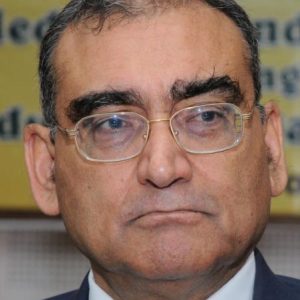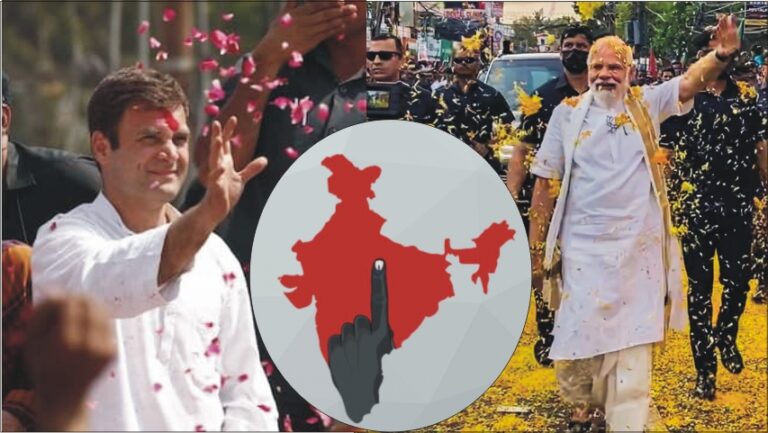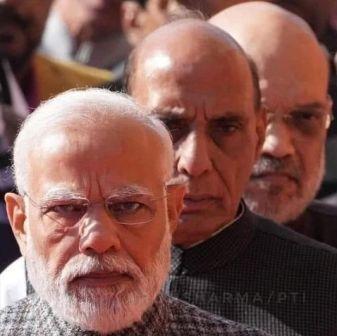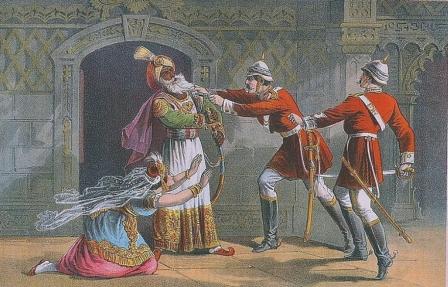

FROM ALL THE information I am getting I am convinced that the seats of the ruling BJP in the Lok Sabha will be considerably reduced when the results of India’s parliamentary elections are declared on June 4th.
 Presently the BJP has 303 seats, and its NDA alliance 353, out of the total of 545 in the House. My guess is that the BJP seats will go down to about 200-210, and the NDA alliance to about 240-250.
Presently the BJP has 303 seats, and its NDA alliance 353, out of the total of 545 in the House. My guess is that the BJP seats will go down to about 200-210, and the NDA alliance to about 240-250.
The opposition INDIA alliance should also get about the same number of seats as the NDA alliance. So a coalition government will have to be formed, either by the NDA or the INDIA alliance.
A coalition government is by its very nature a weak government, with its partners constantly squabbling with each other, as it happened during the Janata Party rule in 1977-79 (after the Emergency), leading to the collapse of the government.
The first thing which will be witnessed after the results are declared on 4th June and a coalition government is formed (either NDA alliance or INDIA alliance) will be a bitter wrangling and bickering over who will get lucrative portfolios like finance, commerce, industry, railways, etc.
Everyone will want these ‘wet’ portfolios, and not ‘dry’ ones like women and child welfare, social justice and empowerment, tribal affairs, environment and climate change, rural development, sports, etc. (just as police darogas want ‘geela’ thanas, not ‘sookha’ ones).
Such a coalition government will remind one the era of the later Mughals.
The last strong Mughal Emperor Aurangzeb died in 1707. The Mughal Emperors thereafter were known as the later Mughals, and they ruled till 1857 when the last Mughal Emperor Bahadur Shah Zafar was deposed by the British.

These later Mughals were Emperors only in name. Their ‘Empire’ was reduced to just Delhi and its vicinity. As the popular saying went ‘Saltanat-e-Shah Alam, az Dilli ta Palam’ (the Empire of Shah Alam is from Delhi to Palam).
The Mughal governors and generals became regional satraps, and declared themselves independent rulers, e.g. Asaf Jah who became the first Nizam of Hyderabad, Saadat Ali Khan, who became the first Nawab of Avadh, Murshid Quli Khan, who became the first Nawab of Bengal, etc.
Similarly, India will be gradually balkanised under the weak coalition government, with state rulers having the real power. These state government rulers will be the kingmakers (like the Syed brothers), making and toppling central governments.
The era of the later Mughals witnessed chaotic conditions and turmoil, and rise of criminal organisations like thugs and pindaris, who ravaged the land. The same is likely to happen again in India in the near future.
The reign of the later Mughals ended when a foreign power conquered India. One shudders to think that history may repeat itself. ![]()
__________
Also Read:
Dr. Manmohan Singh: A Hero Shy of His Own Greatness
‘Yahi Hai Mera Mama’ – A commentary on Lok Sabha Elections
AAP under scrutiny; Delving into poetic justice
Three New Criminal Laws – Some Flaws That Are Prone To Gross Misuse And Abuse
Hai, Modi kitna bura hai! (Agreed. But…)
Relax, My dead body won’t trouble your shoulders!
Shilanyas was a mistake, but Rajiv was not aware of unlocking Babri

Disclaimer : PunjabTodayTV.com and other platforms of the Punjab Today group strive to include views and opinions from across the entire spectrum, but by no means do we agree with everything we publish. Our efforts and editorial choices consistently underscore our authors’ right to the freedom of speech. However, it should be clear to all readers that individual authors are responsible for the information, ideas or opinions in their articles, and very often, these do not reflect the views of PunjabTodayTV.com or other platforms of the group. Punjab Today does not assume any responsibility or liability for the views of authors whose work appears here.
Punjab Today believes in serious, engaging, narrative journalism at a time when mainstream media houses seem to have given up on long-form writing and news television has blurred or altogether erased the lines between news and slapstick entertainment. We at Punjab Today believe that readers such as yourself appreciate cerebral journalism, and would like you to hold us against the best international industry standards. Brickbats are welcome even more than bouquets, though an occasional pat on the back is always encouraging. Good journalism can be a lifeline in these uncertain times worldwide. You can support us in myriad ways. To begin with, by spreading word about us and forwarding this reportage. Stay engaged.
— Team PT


Copyright © Punjab Today TV : All right Reserve 2016 - 2024 |